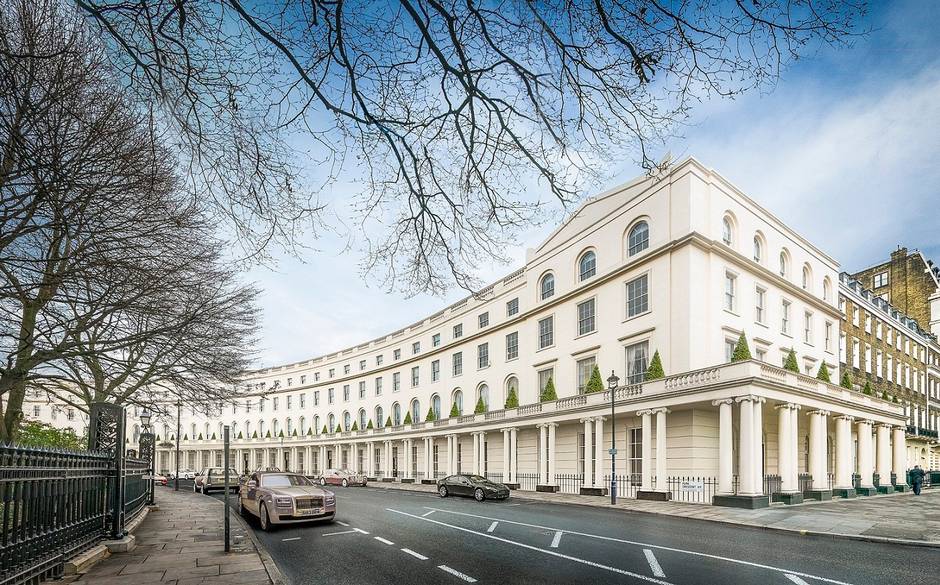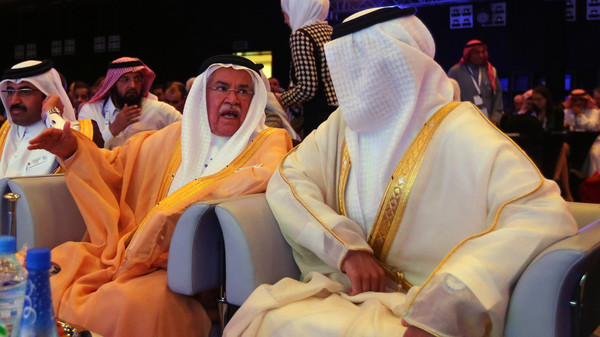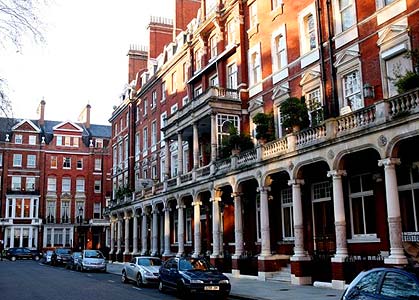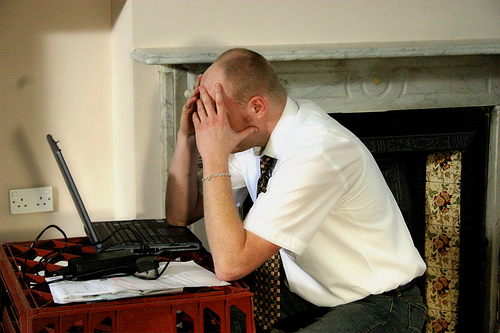Global Economic Outlook As Context for Property Investors
01-18-2016
PropertyInvesting.net team


We aim to deliver objective guidance and insights for property investors with the overall objective of helping you improve your investment returns, flag key risk areas and stimulate strategic thought so you can position your portfolio to maximize gain, for our six thousand website visitors a day and the thousands of people signed up to your Newsletter. This Newsletter cover one key topic:
Global Economic Outlook As Context for Property Investors
The Great Recession: It’s been 8 years since the start of the Great Recession in 2008 – which started the unprecedented money printing binge and too big to fail policies for bankrupt banks. The quantitative easing in the Trillion propped up the market, led to record low interest rates and destroyed savers. It led to very inefficient economic practices – a risky social experiment that people still argue about whether we had too little or too much of it. It "kicked the can down the road". It solved very little. It was the only tool in the Central Banks toolbox that they could eventually use after driving down interest rates to zero. It created bubbles in prime real estate, commodities (oil in particular) and food price. The zero cost cash went to the super rich. It depressed the dollar in an attempt to create real growth. It create phantom growth.
Unravelling of Money Printing: 2016 will start to see this experiment unravel. Firstly most of the jobs created by the printed money have been low paid menial jobs in the USA and UK – a trickle down after the super rich got their mitts on the cash. Even though it feels like most of the UK has been in recession for the last 8 years – or at least from the period 2008-2013, we are now due another recession – albeit the UK should fare better than mainland Europe and most other global countries in our view.
US Rates: The US Fed increased interest rate marginally in December. There was no real justification for this apart from the fact the Fed had all but promised the market to do this by year end. They did not want to disappoint – put it this way – if they had not raised rates a bit, the market probably would have been really spooked and it could have precipitated a crash of some sort. Raising rates during an oil price crash and China's market problems does not seem to make any sense.
China Slowdown – in Trouble: Much of the global growth from 2008 to end 2015 was created by a huge growth spurt in China – but as this economy has matured, and become indebted in its own right, it has not been able to keep the 10% growth rate up – this has probably slipped to something like 4% now and is likely to slip further, possibly close to recession in 2016. This is certainly having a big impact on global investment confidence and is putting further pressure on oil prices – coming down.
Low Oil Prices Saved The World From Recession: What has probably saved the world from recession so far  up to early 2016 has been in the very low prices. The underlying cause of this is something no-one saw coming back in 2008 – namely the shale oil fraccing revolution that delivered an additional 5 million bbls/oil a day of US oil into the market and saved the US from rapidly deteriorating budget deficits and ballooning balance of payments deficits. It has allowed the US to become almost self sufficient in everything – its gigantic oil imports of 9 million bbls/day have shrank to about 2 million bbl/day since 2004 saving $400 billion per year (if oil was still at $100/bbl). Instead, Saudi Arabia in our view panicked and thought they could rapidly crash the US oil production by driving prices down. But despite prices dropping from $100/bbl Aug 2014 to $30/bbl by mid Jan 2016 – US oil production in the last 5 months has actually increased. Yes, despite the number of oil rigs dropping to 40% of the peak, production is actually increasing – mainly driven by the Permian East Texas Field – around Midland in western Texas.
up to early 2016 has been in the very low prices. The underlying cause of this is something no-one saw coming back in 2008 – namely the shale oil fraccing revolution that delivered an additional 5 million bbls/oil a day of US oil into the market and saved the US from rapidly deteriorating budget deficits and ballooning balance of payments deficits. It has allowed the US to become almost self sufficient in everything – its gigantic oil imports of 9 million bbls/day have shrank to about 2 million bbl/day since 2004 saving $400 billion per year (if oil was still at $100/bbl). Instead, Saudi Arabia in our view panicked and thought they could rapidly crash the US oil production by driving prices down. But despite prices dropping from $100/bbl Aug 2014 to $30/bbl by mid Jan 2016 – US oil production in the last 5 months has actually increased. Yes, despite the number of oil rigs dropping to 40% of the peak, production is actually increasing – mainly driven by the Permian East Texas Field – around Midland in western Texas.
US – Saudi Angle: The flood of oil has allowed the US to become more insular and take more of a back seat in the Middle East and internationally. Saudi Arabia feel threatened by this and the USA’s new relationsh ip with their arch foe Iran, doing a nuclear deal – and hence Saudi has made some – in our view – very bold and in some respects maybe rash decisions in the last few months:
ip with their arch foe Iran, doing a nuclear deal – and hence Saudi has made some – in our view – very bold and in some respects maybe rash decisions in the last few months:
· Went to war in Yemen – a proxy war against Shia Iranian back forces that has dangerously destabilized the region
· Executed a leading Shia Cleric Sheik Al-Nimr causing outrage in Iran and Shia communities
· Announced a Middle Eastern Military Alliance against Al-Qaeda extremists
· Announced a potential part privatization of the giant state oil company Aramco - an strategy to raise cash
· Formulated a plan for consumer taxes
· Severed all diplomatic relations with Iran
* A further stampede at Hajj did not help
· Reduced fuel subsidies overnight
Deputy Crown Prince Mohammad bin Salman
Saudi Economy: Some of these key decisions are likely being driven by the Deputy Crown Prince Mohammad bin Salman – who is about 30 year old, and appears to have amassed huge powers – in charge of the Oil Ministry, Finance Ministry and Foreign Ministry and Military. He is the chosen son of the current ruler King Salman and is could be vying for power with his cousin and the Crown Prince and presumptive heir to the throne Mohammed bin Nayef. The two of thee Princes seem to hold most of the power. The pace of change in Saudi is quickening and in our view the economic and politic risks to Saudi Arabia caused of regional civil war, low oil prices and a less stabilized leadership after the change mid 2015 in the hierarchy is large. We think things could deteriorate rapidly through 2016. This is very critical since if Saudi Arabia becomes unstable it will affect the whole of the Middle East and the global economy – particularly as Saudi produce 10 million bbls/day of oil. Saudi has a rapidly expanding population with most people aged under 25, and they need $100/bbl to balance the books – their deficit is running at a giant 15% of GDP and they will run out of cash reserves in about 4 years with these low oil prices. 90% of Saudi oil pipelines pass through eastern Saudi where the Shia are a majority providing a security headache for the ruling Sunnis. 75% of GDP is oil revenue related. The House of Saud in the last few months has gone from a pillar of stability in the region to an erratic unpredictable emboldened entity.
politic risks to Saudi Arabia caused of regional civil war, low oil prices and a less stabilized leadership after the change mid 2015 in the hierarchy is large. We think things could deteriorate rapidly through 2016. This is very critical since if Saudi Arabia becomes unstable it will affect the whole of the Middle East and the global economy – particularly as Saudi produce 10 million bbls/day of oil. Saudi has a rapidly expanding population with most people aged under 25, and they need $100/bbl to balance the books – their deficit is running at a giant 15% of GDP and they will run out of cash reserves in about 4 years with these low oil prices. 90% of Saudi oil pipelines pass through eastern Saudi where the Shia are a majority providing a security headache for the ruling Sunnis. 75% of GDP is oil revenue related. The House of Saud in the last few months has gone from a pillar of stability in the region to an erratic unpredictable emboldened entity.
UK Economy: Back in the UK, initially we see oil price staying low through to at least Sept 2016 – but after that there is a chance they could start rising rapidly and lead to general inflation or stagflation again,  similar to what happened 2010-2012. The longer the oil price stays low, the better for UK property – since interest rates will stay low, general inflation stay low and wage inflation increase faster than general inflation – meaning more jobs, more disposable income and higher property prices. As always, keep a very close eye on oil prices. If they start to spike again, it will mean real trouble for the global economy – particularly countries like Greece, Italy, Spain and France who import all their oil and have high cost bases and social costs. What has saved these countries recently has been the decline in the oil price.
similar to what happened 2010-2012. The longer the oil price stays low, the better for UK property – since interest rates will stay low, general inflation stay low and wage inflation increase faster than general inflation – meaning more jobs, more disposable income and higher property prices. As always, keep a very close eye on oil prices. If they start to spike again, it will mean real trouble for the global economy – particularly countries like Greece, Italy, Spain and France who import all their oil and have high cost bases and social costs. What has saved these countries recently has been the decline in the oil price.
Interest Rate Smoke Screen: In the UK, Chancellor Osbourne warned 6 January about interest rates rising soon. In our view this is a political smoke screen. He’s trying to say the economy is getting back to normal, but it isn’t – apart from in London that is. Most of the UK is still in recession after years of low investment and declining fortunes. There is no inflation and most jobs growth has been low paid service hands. If there is no inflation (and a threat of deflation) – how can the Bank of England put up interest rates? Especially when the Sterling is relatively strong against the Euro. Meanwhile the oil prices continue to crash from $45/bbl early Dec 2015 to $27/bbl by 18 January 2016 which will create more deflation. We just cannot see any serious increase in interest rates for months if not into 2017 especially seeing all the threats of a recession and China’s continued slowdown. All this should perversely support house prices since mortgage rates will remain low and the unemployment rates have dropped to record low levels of around 5%. The good news is most people are working, but the bad news is – many of these jobs are not well paid, and not very secure. However, because there is such a shortage of houses and a population boom – particularly near London and in southern areas close to London, we see house prices continuing to increase, particularly at the lower and middle levels.
Buy-to-Let Hammered: The increasing tax burden on buy-to-let will drive many investors away and  lower overall tax take for the government in the long run. It will also drive up rents sharply as a massive shortage of rental properties in and around London becomes evident starting mid-2016. This will be the direct result of a big slowdown in buy-to-let investment after Osbourne unjustly raided the industry, now calling mortgage interest payment a non-tax deductible charge – something of a global first in taxation of businesses. An inept and ill thought through punitive tax raid – that will have big negative repercussions on the rental market and tenants across the UK.
lower overall tax take for the government in the long run. It will also drive up rents sharply as a massive shortage of rental properties in and around London becomes evident starting mid-2016. This will be the direct result of a big slowdown in buy-to-let investment after Osbourne unjustly raided the industry, now calling mortgage interest payment a non-tax deductible charge – something of a global first in taxation of businesses. An inept and ill thought through punitive tax raid – that will have big negative repercussions on the rental market and tenants across the UK.
Prepare for Recession: Finally, we advise property investors to be prepared for a recession. It’s not for certain it will arrive in the UK, but the warning signs are there for all to see:
· Massive China slowdown
· Mediocre economic news coming from the USA
· Commodities prices declining – oil prices crashing
· Eurozone struggling to create any inflation despite bond purchases through the back door
· Saudi-Iran tensions, war in Syria and ISIS overrunning large tracts of North Africa and Syria/Iraq
· Russian military involvement in the Middle East and Ukraine
· Chinese stock market decline
· Recessions in Brazil, Russia, many African countries and oil exporting nations
More Money Printing: If we see a significant slowdown in the USA and UK, expect the Central Banks to start the printing presses again – it’s the only tool they seem to want to use – this free cash will go to:
· The ultra-wealthy global elite (zero interest rates for the super-rich, 5% for the “commo n” mortgage holder)
n” mortgage holder)
· Create further housing bubbles – particularly in high-end properties
· Some trickle down to low paid jobs
· Boom in luxury goods
· Gold, silver and oil prices rising sharply
· Food price rising – affecting the poor
Current State: At the moment in the UK, it can’t look much better than at present to be frank – with low unemployment, low oil prices, a majority Tory government in power for a further 4½ years, Labour in disarray and high service sector growth with a strong Sterling. If a recession hits – firstly giant inflow of printing money will be pumped in – then we will see rising commodities prices and eventually even higher prime London house prices.
We hope this Newsletter focusing on 2016 trends has been insightful for you and your property investment decisions. If you have any comments or queries, please contact us onenquiries@propertyinvesting.net

